SUMMARY
This is AI generated summarization, which may have errors. For context, always refer to the full article.
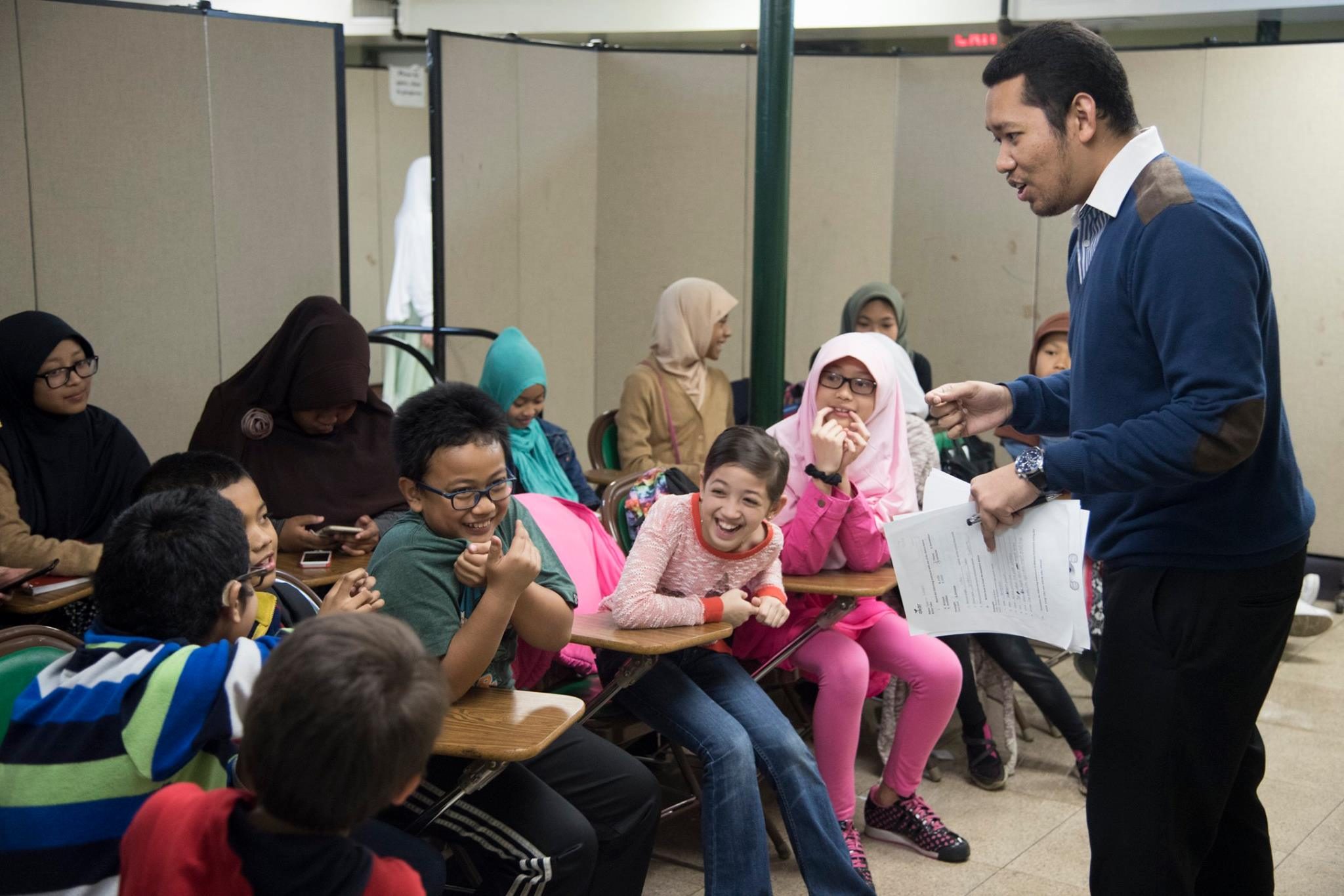
NEW YORK CITY, United States – The 9 children – 4 boys and 5 girls – took a while to get settled down in their section of the basement at Al-Hikmah Mosque in Astoria. Their new instructor, a 26-year-old graduate student at Columbia’s School of Professional Studies, cleared his throat and introduced himself.
“Little brothers and sisters,” he said in Indonesian, over the din. “Selamat sore!” Good afternoon!
“Selamat sore!,” came the enthusiastic reply, in pronounced American accents.
“My name is Ikram,” he continued, writing it on the whiteboard at the front of the makeshift classroom. “You can call me Kak Ikram.” “Kak,” short for “kakak,” is Indonesian for “older sibling” and is often used as an honorific.
“Today we will learn about ‘Asking and Answering,’” said Ikram, as he passed out worksheets to the students of “Kelas Tahu,” or “Beancurd Class.” Off-key singing of the Indonesian alphabet could be heard from another corner of the basement, where “Kelas Nasi Goreng,” or “Fried Rice Class,” met.
This was the first day of the spring semester of the AKAR program, which was started by the Indonesian Student Organization in New York (“PERMIAS”). Indonesian university students volunteer their time to teach Indonesian language and culture to the children of the Indonesian diaspora in New York.
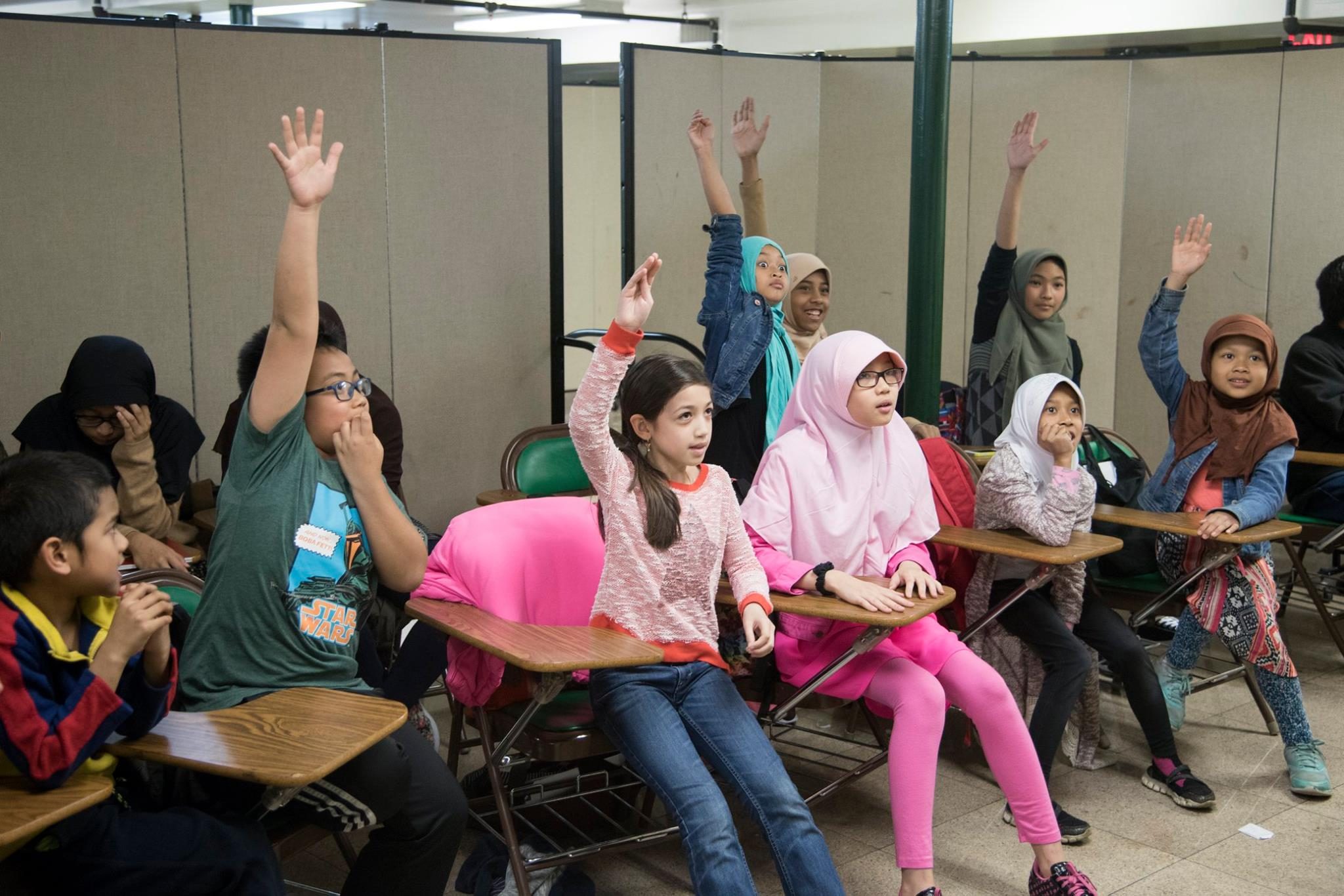
AKAR is the Indonesian word for root, and was inspired by a quote from the Sacred Bridge Foundation, an Indonesian nonprofit: “If you have no roots, how would you stand up and grow?”
With over 240 million people, Indonesia is the 4th most populous country in the world, behind only China, India, and the U.S. Its national language, Indonesian, is a register of Malay that was adopted by nationalist groups in 1928 in an attempt to unify the archipelago’s 360 ethnic groups and the more than 700 local languages and dialects they speak.
The importance of the language is enshrined in the Indonesian Youth Pledge, roughly akin to the Pledge of Allegiance:
“Firstly, we the sons and daughters of Indonesia, acknowledge one motherland, Indonesia. Secondly, we the sons and daughters of Indonesia, acknowledge one nation, the nation of Indonesia. Thirdly, we the sons and daughters of Indonesia, respect the language of unity, Indonesian.”
Learning Indonesian
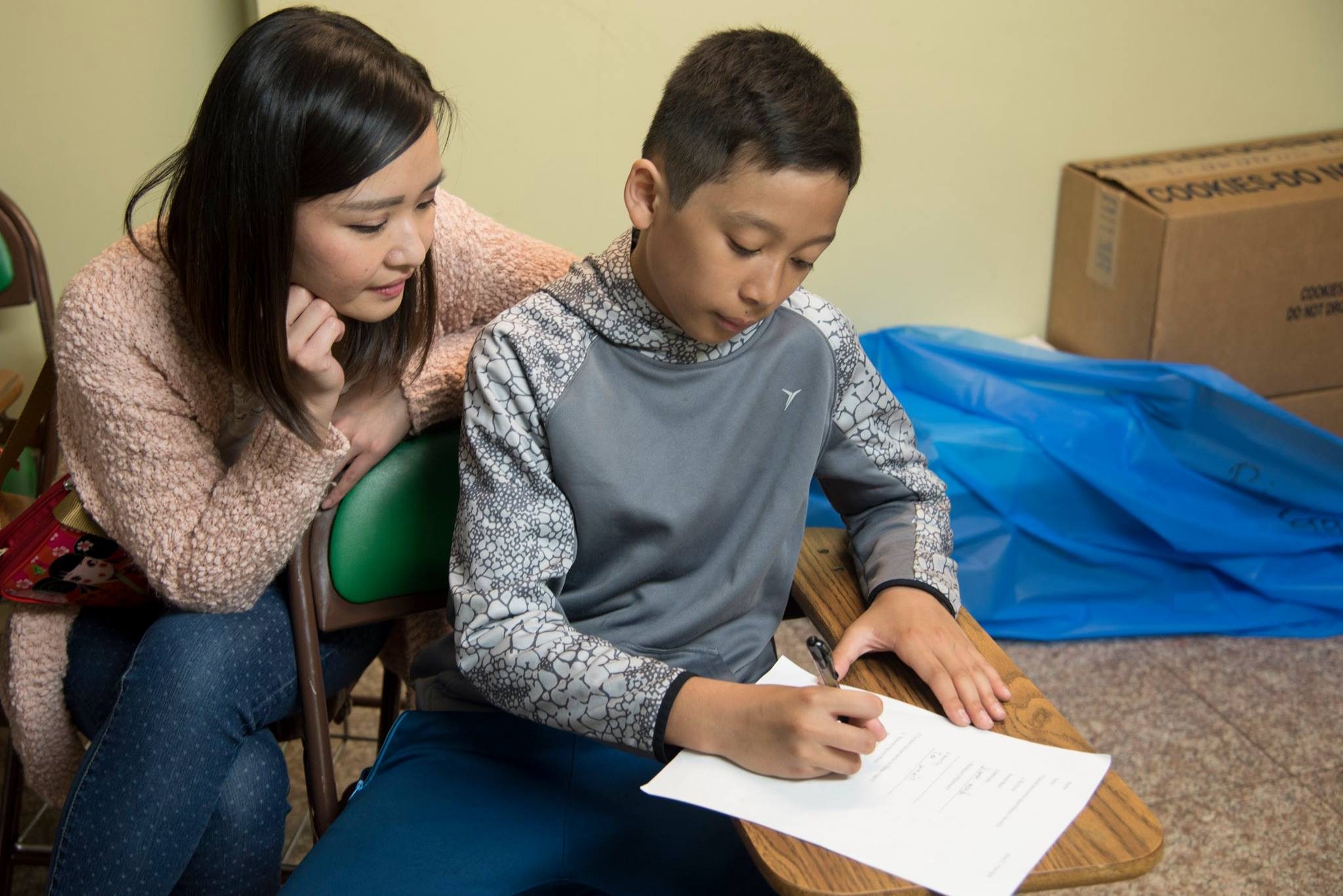
Indonesian is a fairly easy language to learn: words are pronounced phonetically, there are no tenses, and there is no need to learn masculine and feminine versions of words as in French and Spanish.
The Foreign Service Institute of the U.S. Department of State estimates that it would take 36 weeks for an English speaker to gain a general proficiency in Indonesian – slightly longer than Spanish or Italian, but significantly shorter than it would take to learn Russian or Tagalog.
Even President Barack Obama, who spent 4 years in Indonesia in the late 1960s, can still muster a few words of only lightly accented Indonesian.
The 2010 Census puts the number of Indonesians in New York City at about 3,700, mostly concentrated in Queens. In Elmhurst, Indonesian restaurants and produce are easy to find, and as many as 4 Indonesian churches have been established.
In Astoria, AKAR classes are held every Saturday afternoon at the Al-Hikmah Mosque, the center of the Indonesian community in Queens. The basement, also home to the mosque’s Saturday school – the Muslim equivalent of Sunday school – is one big unadorned space that is separated by room dividers. AKAR volunteers scramble to get the dividers and tablet chairs in place before classes start at 3 p.m.
The AKAR program started in November 2014, on the initiative of PERMIAS member Andhini Febrina. Febrina, then an accounting student at CUNY’s Lehman College, was motivated to start the class after an Indonesian Independence Day celebration near the mosque.
“We had some leftover prizes to give out so we decided to do a little contest for the kids,” she said. “So we asked them: ‘When is Indonesia’s Independence Day?’”
The answer that rang out was: “Fourth of July!” The correct answer, as proclaimed in many songs during the celebration, is August 17.
“So we tried to ask another question: ‘What color is the Indonesian flag?’”
This time, the children answered correctly: “Red and white.” But when asked which part was red and which was white, they got it wrong, mixing up Indonesia’s flag with Poland’s.
“After that, I started to grumble to the other PERMIAS members. These kids’ parents are mostly both Indonesian, and they know so little about Indonesia,” said Febrina. “It started out as just talking, but then we thought, why not organize a class?”
And they did just that.
Challenges
After approaching the mosque to get permission to use the basement, Febrina and her friends made a presentation to the “ibu-ibu,” or ladies of the community. The response was positive.
“We only had enough instructors for 20 students. After some prodding from the ibu-ibu we ended up fitting in 25.” Now, in AKAR’s fourth semester, there are 44 students, divided into 6 classes, all named after traditional Indonesian foods.
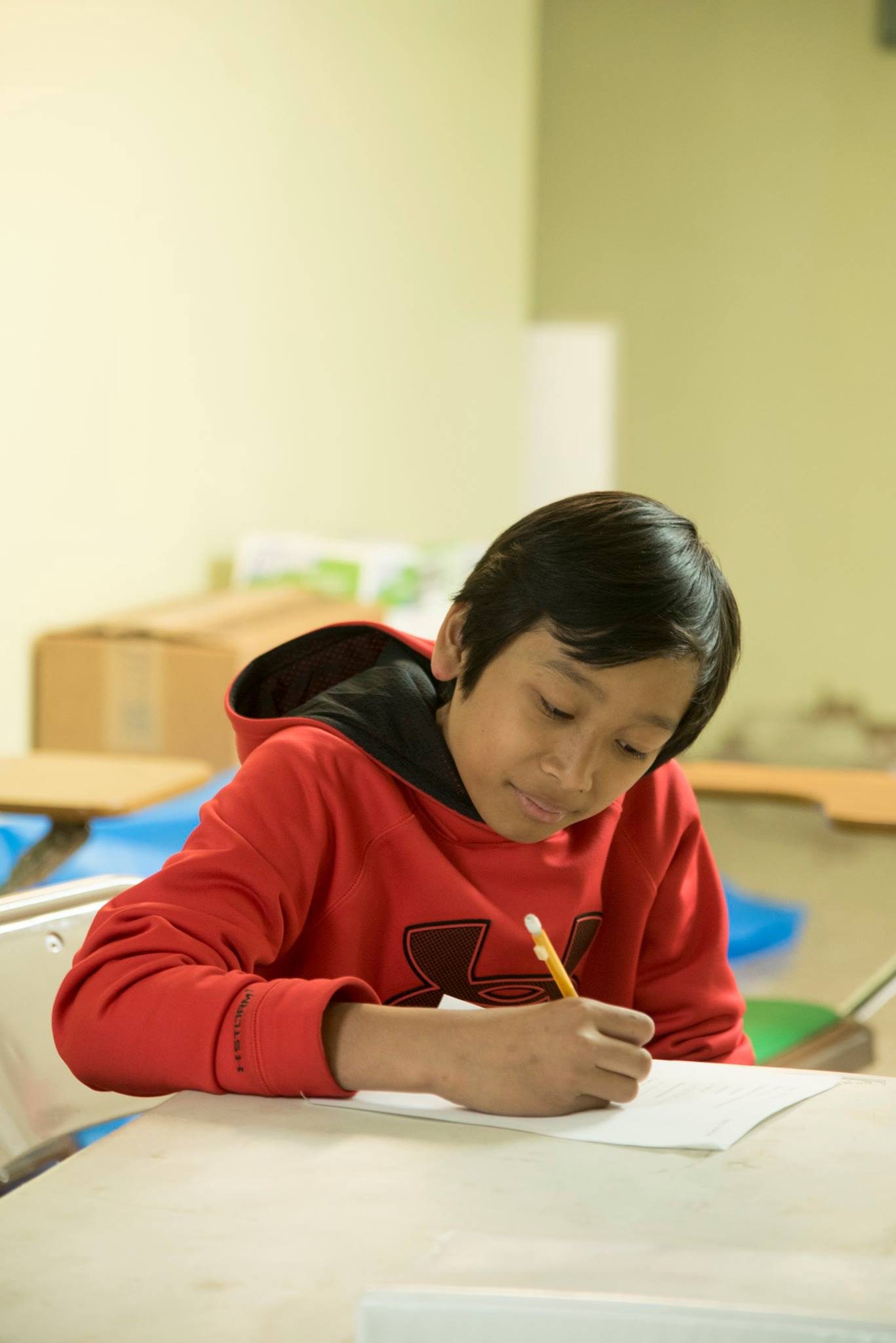
At first, the curriculum was entirely improvised. “We just tried to remember what we used to learn in elementary school,” said Febrina, laughing. “‘My name is…,’ ‘My age is…,’ those kind of things. We would look for worksheets online and try to get inspiration from there.”
Not long after, an acquaintance of one of the PERMIAS members donated a bunch of used Australian textbooks that taught Indonesian as a second language. Now, photocopies from the books are used for class exercises.
Febrina, now graduated and working at a New York branch of an Indonesian bank, is no longer a permanent AKAR instructor. But she still comes to help out most weekends, and takes the role of adviser to the new administration.
Still, there may be gaps in the syllabus. Ikram, in an attempt to teach civics as well as interrogative words, asked his class, “Who is the president of Indonesia?”
“Jokowi!” came the answer, referring to the President Joko Widodo’s popular nickname.
“Good,” said Ikram, “Who is the vice president of Indonesia?”
Some hesitation, until one student popped up: “Donald Trump!”
Ikram couldn’t help but laugh.
Giving back
Ikram, unique among the AKAR instructors, has some teaching experience.
“I come from a family of educators,” he said, smiling.
He is the 4th child of 7 siblings, and his mother and older brothers are all teachers. After earning a bachelor’s degree in mathematics and business, Ikram went into banking. He was doing well, he said, but wasn’t feeling fulfilled. He applied for a scholarship from Indonesia’s Ministry of Finance, and was accepted.
One of the criteria for the scholarship was that the recipient was willing to contribute to Indonesia, whether from within the country or from outside. Ikram saw AKAR as a chance to do just that.
“Columbia is busy, but it’s not that busy,” he said. “I thought, since I had the time, that it would be good to help teach Indonesian children.” While working in Jakarta, Indonesia’s capital, Ikram had volunteered to help teach homeless children. He had also previously taught Quran reading to children at his local mosque.
He was a little shocked when he saw just how many Indonesian children were unable to speak Indonesian. “I thought people like that, like Cinta Laura, were just being snobbish,” said Ikram, referring to a half-Indonesian, half-German celebrity who is known for her heavily accented and broken Indonesian, despite having lived in the country since she was 12.
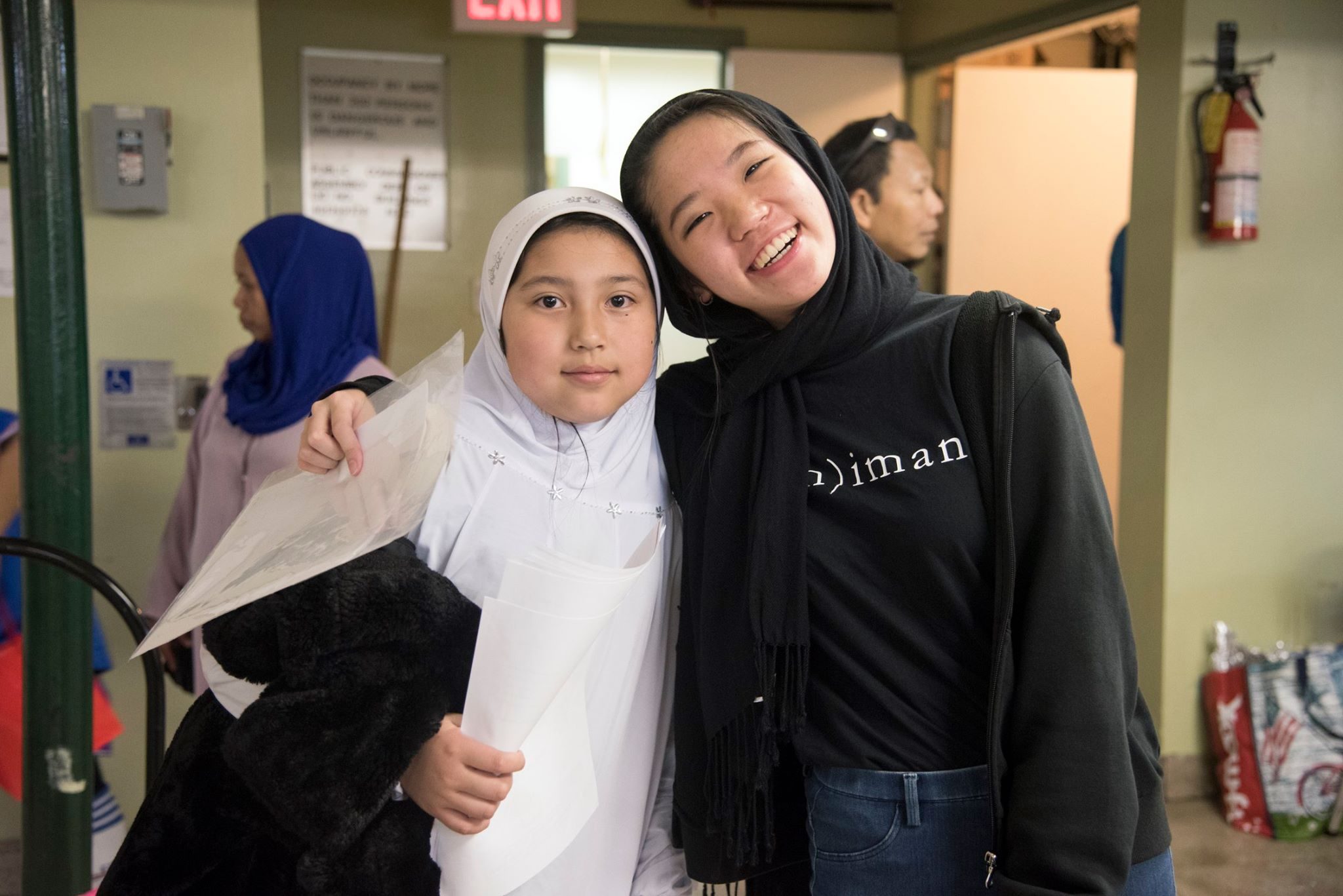
“I used to tell my friends that all real Indonesians could speak the language, even if they’ve never been to Indonesia. AKAR proved me wrong.”
Nevertheless, he is impressed by his students’ eagerness to learn, not only the language, but the culture as well. “My class, Kelas Tahu, is at a pretty advanced level,” said Ikram. “Many of them are already very good in Indonesian, and have big vocabularies. It’s just that they need to speak it more regularly.”
They all have different motivations, he continued. Some were there mostly because of their parents, but others were more self-driven.
“My favorite student is Sheerin,” said Ikram. “She wrote in her midterm exam that she wants to be an AKAR instructor when she grows up.” That is the goal, he said. To make AKAR sustainable in the long term. “Maybe we will be known as the AKAR ‘founding fathers,’” he half-joked.
Ikram offers a reason why the parents don’t prioritize Indonesian with their children.
“The parents themselves often struggle to improve their own English,” he said. “So they let their children stay immersed in English, to avoid confusion.” Ikram doesn’t blame them.
“If I had kids, I would want them to learn English more, too.”
Link to home
Indah Sunarto, 39, is the mother of Lorry, another one of Ikram’s best students. Lorry, like Sheerin, also wrote that she would like to be an AKAR instructor in the future.
Indah is a small woman, barely taller than her 11-year-old daughter. Unlike her daughter, she speaks English in a hesitant and disjointed way. She came to New York in 2000, as a maid for a more affluent Indonesian family. She met her husband, also Indonesian, in 2004, and decided to stay in the country.
Like many of the Indonesians in Queens, she and her husband are undocumented immigrants. But their children, Lorry and her younger brother, Yahya, were born here and are U.S. citizens.
“I came here, got married, and had two children, all alone,” Indah said in Indonesian, smiling.
In Surabaya, where Indah came from, wedding rituals are elaborate and can last several days. Her own wedding was a simple ceremony at the Al-Hikmah mosque. Netiher she nor her husband has any family members in New York. “It was just the two of us.”
She signed Lorry up for AKAR classes as soon as they started, back in 2014. “At home, we spoke to her in Indonesian and Javanese,” she said. “But Lorry would usually reply in English. We thought, the more languages she learns, the better.”
Indah wanted Lorry and Yahya to learn more Indonesian so that she could better communicate with relatives back home. “Their grandmother has never met them face-to-face,” she said. “But we talk regularly through video calls using LINE,” a mobile messaging application popular in Asia.
Their conversations are friendly and warm, although Yahya’s Indonesian is a little stilted. “It’s good so that when they do meet, I hope it won’t be awkward.”
Due to her undocumented status, Indah does not know when she can go back.
Citra Koch, 46, does not share the same plight. The mother of two AKAR students – Suzan, 10, and Adam, 7, both in Kelas Nasi Goreng – she comes from a more cosmopolitan background, born and bred in Jakarta, Indonesia’s capital.
She has lived in New York since 1998 and speaks fluent English, having studied it since middle school. She married a Turkish-American man and has a green card. She has taken her children back to visit her family a couple of times already.
And yet she shares many of Indah’s sentiments about learning Indonesian.
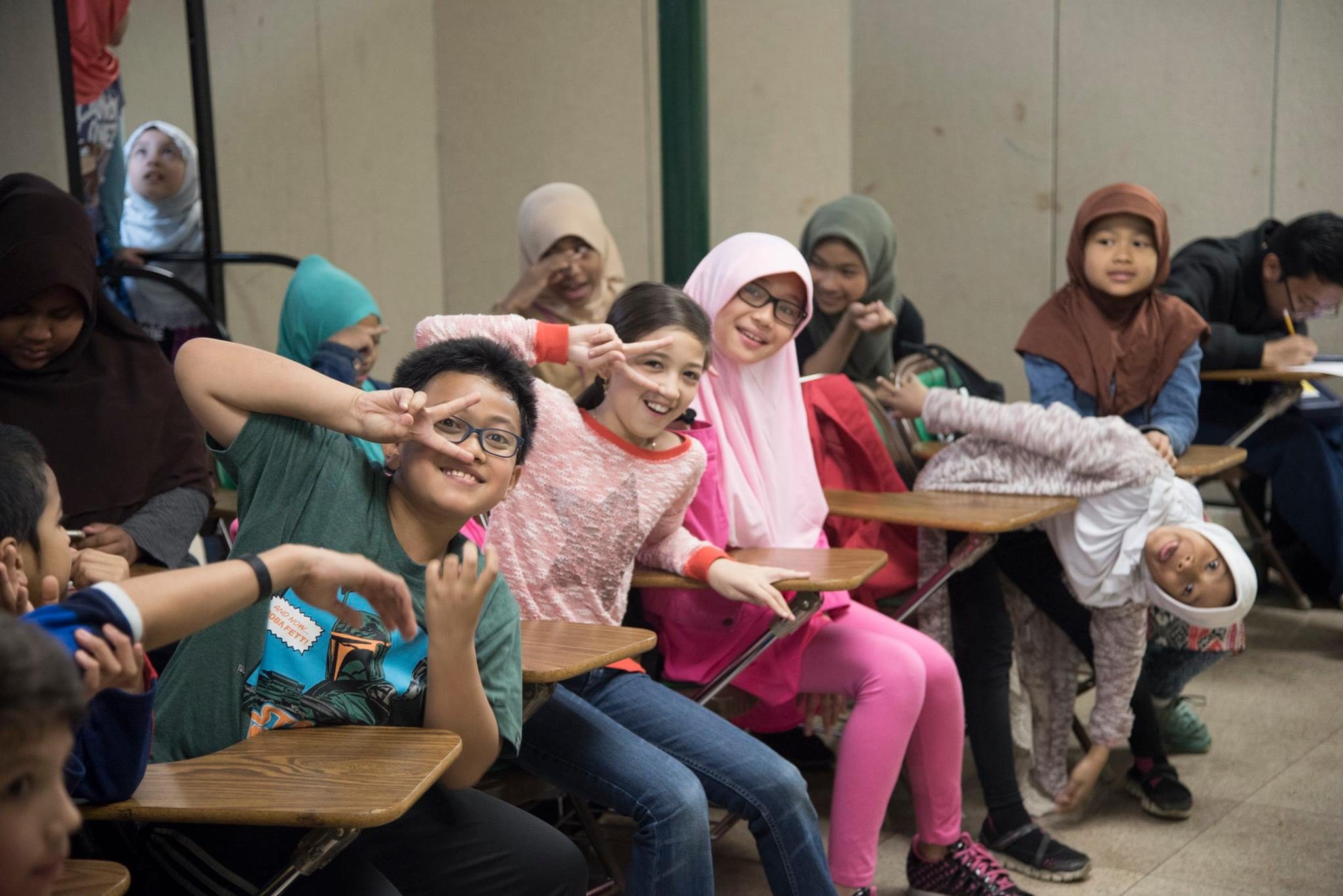
“It’s good for them to know as many languages as possible,” said Koch. She said that after joining AKAR, she has seen a lot of improvement in their Indonesian vocabulary and pronunciation. AKAR has also helped them communicate with family members back in Indonesia.
“They can speak to their cousins now,” she said. “They talk on the phone and on Whatsapp messenger, even though their spelling is a little wrong sometimes.”
Progress
The last day of the spring AKAR semester was a day of celebration. Contests were held for the children, while the parents brought home-cooked Indonesian food for the instructors, as a gesture of thanks.
Kelas Tahu and Kelas Nasi Goreng had a spelling bee, led by Ikram. Expected at the mosque by 2 p.m. to prepare, he arrived an hour late in a striped blue dress shirt and black slacks, a satchel slung over his shoulder. “I had a senior project meeting that ran long,” he said apologetically.
Without time to put together anything, Ikram winged it. He started off with relatively simple words like “makanan” (“food”), “piring” (“plate”) and “binatang” (“animal”). Then he got more ambitious, testing the eager students with words like “undang-undang dasar” (“constitution”) and “kepulauan” (“archipelago”).
Students Lorry, Sheerin, Suzan and Adam all got on the board, correctly spelling a couple of words each. But Lorry soon ran away with it, and won first prize with 5 correctly spelled words. Indah, watching surreptitiously through a gap in the room dividers, smiled proudly.
Afterwards, Ikram handed out end-of-semester report cards to his students’ parents. “Like you saw, Lorry is doing very well,” he said to a beaming Indah. “She just needs to practice more and learn the difference between formal and slang words.”
Indah took the report card and shook Ikram’s hand. “Thank you so much for teaching our children.” – Rappler.com
Add a comment
How does this make you feel?
There are no comments yet. Add your comment to start the conversation.